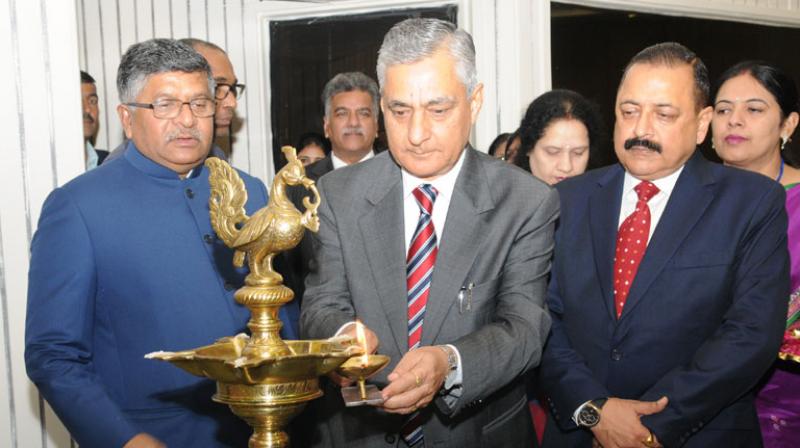Spar over judges' strength: CJI says 500 posts vacant, law minister disagrees
Government has made 120 appointments this year which was the second highest since 1990, says Ravi Shankar Prasad.

New Delhi: Simmering differences between the judiciary and the government over the appointment of judges erupted in the open on Saturday, with the law minister Ravishankar Prasad saying that during Emergency, High Courts had showed great courage and determination but the Supreme Court failed the nation.
“As many as 500 judges posts are vacant in the high courts. They should be working today, but they are not. At present, there are several vacant courtrooms in India but no judges available. A large number of proposals are still pending and hope the government will intervene to end this crisis,” Justice Thakur said while addressing an All India Conference of Central Administrative Tribunal (CAT).
Disagreeing with the CJI, the law minister said the Government has made 120 appointments this year which was the second highest since 1990. The highest number of appointments of 121 were made in 2013, Mr Prasad said.
Later, at another function in the Supreme Court lawns, the CJI cautioned that no organs of government should cross the ‘lakshman rekha’ and stressed judiciary has been given the duty to watch that all remain within their limits.
He was responding to Attorney General (A-G) Mukul Rohatgi, who in an apparent reference to the Emergency and other political scenarios, had said that “the delicate balance of the Constitution was disturbed in 1970s. That balance must be restored”.
Hours later, Mr Rohatgi said at another Law Day function in the presence of the CJI and his likely successor Justice J.S. Khehar, that “all including judiciary must recognise there is ‘lakshman rekha’ and be ready for introspection."
While the CJI did not respond to it, Justice Khehar said, “Judiciary has always kept to ‘lakshman rekha’ by upholding the Constitution.” “Emergency brought out strengths and weaknesses of the Constitution,” he said responding to the AG's remarks.
However, the law minister was very vocal in attacking the Judiciary by saying that the “Supreme Court failed us during the Emergency and all high courts showed great courage”.
“Courts may quash the order of the Government. Courts may set aside a legislation but the governance must remain with those who are elected to govern,” he said, adding handling of the issues relating to Emergency in the ADM Jabalpur case in which the apex court held that even fundamental rights can be suspended was a “monumental lapse”.
Mr Prasad allayed apprehensions on curtailment of freedom by the present dispensation saying not only he but also the Prime Minister suffered during the Emergency and “it will preserve the freedom of all organs of the State”.
Justice Khehar said, “Judiciary is mandated to shield all persons, citizens and non-citizens alike, against discrimination and abuse of State power. Liberty, equality and dignity of citizen have flourished substantially in India due to the pro-active role of judiciary in the country.” He added that “a progressive civil society and a pulsating media have contributed to keep the constitutional values on track.”

